Balky horses have reasons for their behavior. Here’s how to recognize root causes and overcome the different varieties of balkiness.

IF YOU’RE LIKE MOST HORSE PEOPLE, you’ve encountered a balky horse or two. When it happens, though, do you know what’s causing the behavior and how to handle it? There are actually various causes of balkiness, each requiring a different approach.
Using insight I’ve gleaned from working with countless horses at clinics, I’ll explain the different forms of balkiness I’ve identified, explore what causes the behavior, and show you how to overcome it. Physical pain can cause a reluctance to move, but once a veterinarian has ruled that out, there are three key types of balkiness—herd-bound, lack of confidence, and rider-induced.
I’ll discuss each in turn.
Herd-Bound
Behavior: Your horse resists leaving the barn or a herdmate. He hates moving away from things he enjoys or finds comfort in. At some point during a ride, he may plant his feet and refuse to be ridden any farther from the place or horse he’s drawn to. Even if he doesn’t completely plant his feet, he may walk slower going away from home than he does returning home, even zigzagging to try to linger there. It may even be difficult to control his speed on the way home, a danger connected to this type of balkiness.
Cause: His mind and attention remain at home even though he’s being ridden physically away from home. He’s so preoccupied with staying home or returning there that any ride you do get from him will be difficult and potentially dangerous.
This story is from the August 2017 edition of Horse and Rider.
Start your 7-day Magzter GOLD free trial to access thousands of curated premium stories, and 9,000+ magazines and newspapers.
Already a subscriber ? Sign In
This story is from the August 2017 edition of Horse and Rider.
Start your 7-day Magzter GOLD free trial to access thousands of curated premium stories, and 9,000+ magazines and newspapers.
Already a subscriber? Sign In
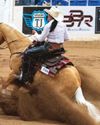
The Horse
LIFE TAKES US DOWN different paths, but I seem to be on just one, which is with the horse.
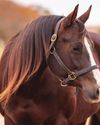
Decoding the Diseases Examined by AQHA's Six-Panel Test
The six-panel test is a diagnostic tool used to assess the genetic predispositions of horses. It's meant to discover if a horse has or is a carrier for certain hereditary diseases and traits.
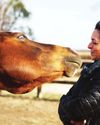
Love is Good
All horses are assured a hopeful, compassionate plan of care at This Old Horse, a program that helps not only horses but people, too.
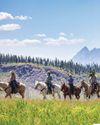
HORSE PACKING 101
Take your trail riding to the next level with nature-filled adventures in the back or front country.
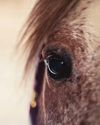
NEW HORSE; NEW PROBLEMS
Anew horse can bring excitement and energy to the barn, and even reinvigorate your passion. However, there are also a myriad of new problems that can come with a new horse, so learn how to introduce him properly to avoid these common issues.
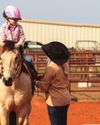
First-Timer Tips
Heading to a young rider's first event with their horse can be intimidating. Use these myths and truths to make it smoother sailing for yourself and your young rider.
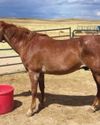
Re-Rescued: Aslan's Story
One special gelding learns about three different types of love during his rescue journey.
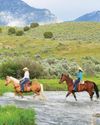
The Country's Hottest Horse Motels
Take your next trail-riding adventure to the next level by staying at one of these six horse motels across the United States.
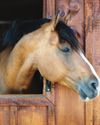
Outbreak! What We've Learned
Learn how disease outbreaks in recent years have changed the horse industry, and why it's so important to play your part when it comes to disease prevention efforts.
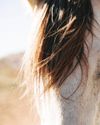
TRAINING THE SENSITIVE HORSE
Shift your mindset and grow your sensitive horse's pressure-handling skills to improve his confidence and your riding enjoyment.